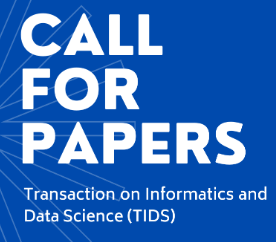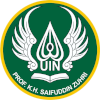Author Guideline
Submission Guideline
- Articles are written in American English, with good and correct vocabulary and grammar.
- Articles with severe vocabulary and grammar errors will be immediately returned to the author for improvement.
- The use of artificial intelligence is allowed only for editing and grammar improvement.
- Articles are not recycled, in the sense that the submitted articles are identical or substantially the same in form or content, with articles that have been published before, whether written by himself or others.
- Article length between 4000-8000 words.
- The article has never been published, nor is it being submitted and considered for publication in another journal.
- The article is not a translation that has been published in another journal.
- Prepare the article according to the TIDS template. If the article submission does not match the template, it will be returned to the author and sent back if it follows the template.
- Authors must obey the writing rules as stated in the TIDS template.
- Manuscript has the following structure: 1) introduction; 2) abstract; 3) introduction; 4) related research; 5) method; 6) Result and Analysis; 7) Discussion; 8) conclusion; 9) acknowledgement; 10) author contribution; 11) references.
- Citations and references are required to use reference manager applications (Mendeley, Zotero, EndNote, etc.), in IEEE style. Complete citation and reference guidelines at https://journals.ieeeauthorcenter.ieee.org/wp-content/uploads/sites/7/IEEE_Reference_Guide.pdf
- It is forbidden to do self-citation that is not relevant to the topic of the article.
- Before submitting, the author must register by filling out the complete registration form.
- Monitor the progress of the article through the OJS system. We update progress by sending a notification to the author's email.
- The author can also ask the editor about the article's progress via email at [email protected].
Manuscript Review
- Articles that pass the screening stage are sent to two reviewers.
- TIDS implements an open review policy to support transparency article governance.
- Suppose two reviewers give a very striking assessment (for example, the first reviewer gives a revision recommendation, while the second reviewer gives a recommendation rejected or accepted). In that case, the editor will appoint a third reviewer to get a second opinion. The final decision is absolutely the right of the editor.
- The author is required to make revisions following the reviewers' notes.
- The author must send the revised results according to the deadline, as stated in the notification email.
- If the article's revision to the editor does not follow the reviewer's notes, it will be requested once again to make revisions. The editor will give a declined status if the second revision does not match the recommendations of the reviewer's note.
- Editors will give a Declined status if the author does not submit revision results for six months from the date of sending the notification email.
Accepted Manuscript
- Articles that have been declared accepted must include a curriculum vitae and statement of publication ethics. it is sent through the Add Discussion menu at the bottom of the OJS.
- The author pays APC according to the provisions if it has been declared accepted.
- The author is prohibited from making withdrawals if it has been declared accepted. If you insist on withdrawing, you must pay a one-time APC fee as a penalty.
Production
- Articles with accepted status then enter the production stage, which consists of copyediting, layout, and proofreading.
- The layout results will be sent to the author for correction. The opportunity for correction is only given once.
- If the author does not respond to the proofreading notification by the specified deadline, it agrees with the layout results and is ready to be published.
- Adding authors when they enter the production stage is forbidden, but changes in the authors' order are still allowed.






